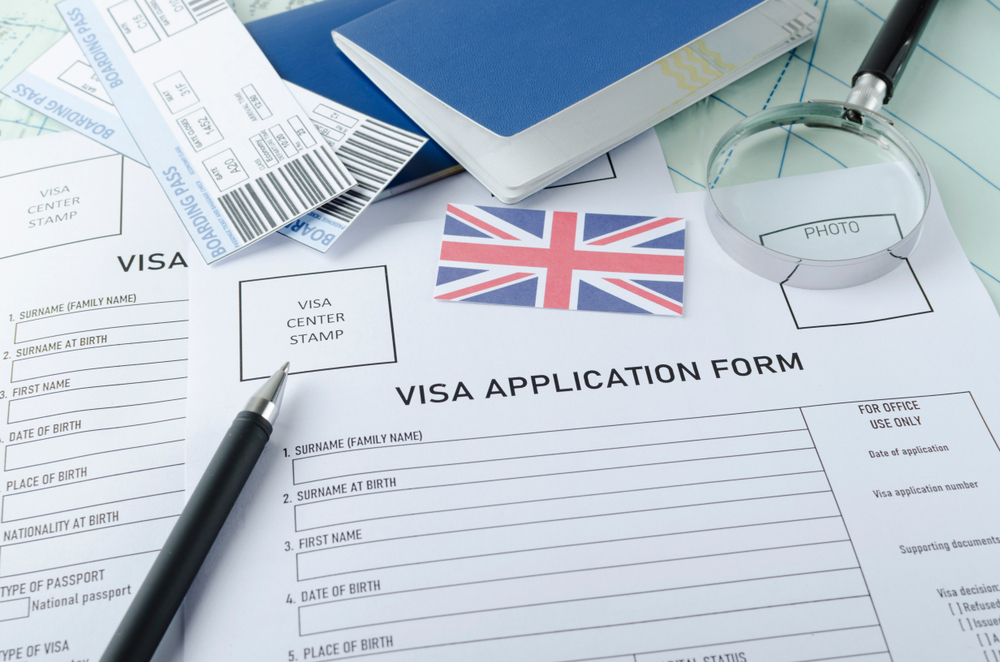7 Things to Avoid During the UK Visa Application Process
7 Things to Avoid During the UK Visa Application Process
Applying for a UK visa can be an exciting yet a difficult process. Whether you’re planning to visit the UK for tourism, business, study, or to reunite with family, it’s important to understand the visa application process and avoid common mistakes that could lead to a rejection.
In this article, I’ll walk you through 7 key things to avoid during your UK visa application journey to increase your chances of approval.
Mistake 1: Submitting incomplete or inaccurate information
One of the most common reasons for UK visa rejections is submitting an application with incomplete or inaccurate information. The UK visa authorities expect you to provide truthful and precise details about your personal information, travel plans, and reasons for visiting the UK. Failing to do so can raise red flags and lead to a rejection. For example, make sure to double-check your personal details like your name, date of birth, and passport number. Provide accurate information about your employment history, educational background, and any criminal convictions. Inconsistencies or omissions in your application can make the visa officer question your credibility and intentions.
For example, make sure to double-check your personal details like your name, date of birth, and passport number. Provide accurate information about your employment history, educational background, and any criminal convictions. Inconsistencies or omissions in your application can make the visa officer question your credibility and intentions.
Read: The 6 Biggest Mistakes People Make When Applying for a UK Visa
Mistake 2: Failing to provide sufficient supporting documents
Another important aspect of a successful UK visa application is submitting all the required supporting documents. These documents serve as evidence to support the information you provide in your application form and demonstrate your eligibility for the visa.
Essential documents may include a valid passport, proof of financial means (such as bank statements or payslips), a detailed travel itinerary, and proof of accommodation bookings. Depending on the type of visa you’re applying for, you may also need to provide additional documents like an employment contract, a letter of acceptance from a UK university, or an invitation letter from a UK-based company or host.
Mistake 3: Applying for the wrong type of visa
The UK offers various types of visas depending on the purpose and duration of your visit. Applying for the wrong type of visa can lead to an automatic rejection, so it’s essential to understand the different visa categories and choose the one that best suits your needs. Some common types of UK visas include:
Some common types of UK visas include:
- Standard Visitor Visa: for tourism, business trips, or visiting family and friends
- Student Visa: for studying at a UK educational institution
- Skilled Worker Visa: for working in the UK with a job offer from a licensed sponsor
- Family Visa: for joining or accompanying a family member who is a UK citizen or settled in the UK
To determine the appropriate visa category, carefully consider the purpose of your visit, the length of your stay, and your ties to the UK. Consult the official UK government website or seek guidance from a qualified immigration lawyer if you’re unsure about which visa to apply for.
Mistake 4: Not demonstrating strong ties to home country
When applying for a UK visa, it’s essential to show that you have strong ties to your home country and that you intend to return after your visit. The UK visa authorities want to ensure that you won’t overstay your visa or attempt to settle in the UK illegally.
To demonstrate your strong ties, provide evidence of your employment, such as a letter from your employer confirming your job title, salary, and length of employment. If you own a business, include registration documents and financial records. Additionally, highlight your family ties, such as marriage certificates, birth certificates of your children, or evidence of your parents’ residence in your home country. If you own property or have significant assets in your home country, provide documentation as proof of your rootedness.
Read: 6 Things to Avoid During the UK Visa Application Process
Mistake 5: Insufficient proof of financial means
Another critical factor in the UK visa application process is providing sufficient evidence of your financial means to cover your expenses during your stay. The visa authorities want to ensure that you can support yourself without recourse to public funds.
Acceptable forms of financial proof include bank statements showing a consistent balance over a period of time (usually six months), payslips, or a letter from your employer confirming your salary. If you’re being sponsored by a family member or friend in the UK, they must provide a sponsorship letter and evidence of their financial means to support you.
Mistake 6: Submitting a poorly prepared application
A well-prepared visa application is important for a positive outcome. Submitting an application that is disorganized, incomplete, or filled with errors can create a negative impression and lead to a rejection.
To ensure your application is well-prepared, follow these tips:
- Carefully read the application instructions and provide all the required information and documents
- Use clear and concise language when answering questions
- Double-check for spelling and grammar errors
- Organize your supporting documents in a logical order and label them clearly
- Provide high-quality photocopies or scans of your documents
- Consider seeking professional help from a qualified immigration lawyer or visa consultant
Mistake 7: Not being truthful or consistent
Honesty and consistency are paramount throughout the UK visa application process. Providing false information, concealing relevant facts, or being inconsistent in your statements can seriously jeopardize your chances of approval.
The UK visa authorities have sophisticated means to verify the information you provide, such as background checks, interviews, and cross-referencing with other government databases. If they discover any discrepancies or misrepresentations in your application, your credibility will be questioned, and your visa will likely be refused.
Moreover, providing false information on a UK visa application is a criminal offense and can result in a ban from entering the UK for up to 10 years. Always be truthful and consistent in your application, even if you think certain information might negatively impact your chances of approval.

forklift opretar jab want
How can I apply
Saudi Arabia. Pakistan
welder and fabricator